Introduction Digital marketing has revolutionized the way businesses reach their audience. With the rise of the internet and social media, companies are leveraging digital platforms to enhance their brand presence, generate leads, and increase sales. This article delves into the vast scope of digital marketing, exploring its significance, components, and future trends.
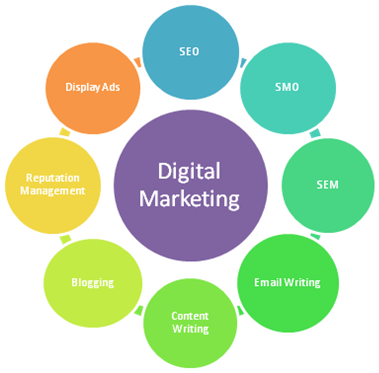
1. Understanding Digital Marketing Digital marketing refers to the use of digital channels such as search engines, social media, email, and websites to promote products and services. It encompasses various strategies, including SEO, content marketing, PPC advertising, social media marketing, and email camp.
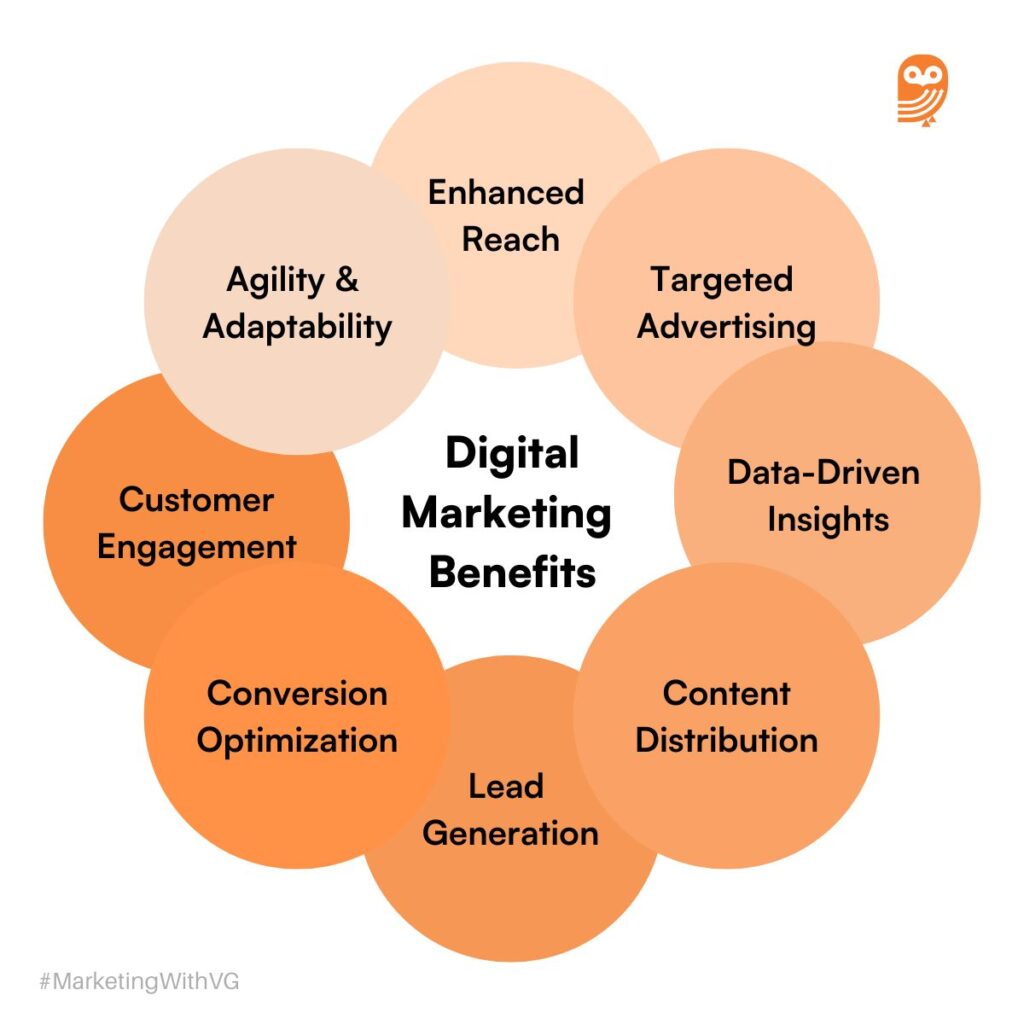
2. Importance of Digital Marketing In today’s digital age, consumers are increasingly relying on online sources for information and purchases. Businesses that invest in digital marketing gain a competitive advantage by reaching a broader audience, enhancing customer engagement, and optimizing their marketing budget.
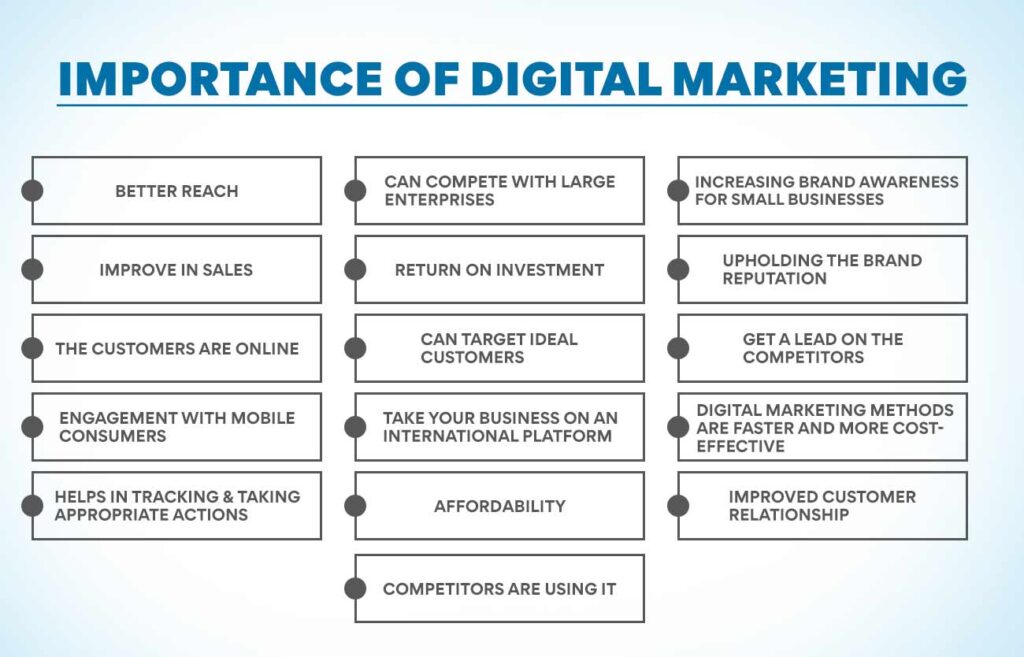
3. Components of Digital Marketing Digital marketing consists of several elements that work together to create a successful online presence. These include:
- Search Engine Optimization (SEO)
- Content Marketing
- Pay-Per-Click Advertising (PPC)
- Social Media Marketing (SMM)
- Email Marketing
- Affiliate Marketing
- Influencer Marketing
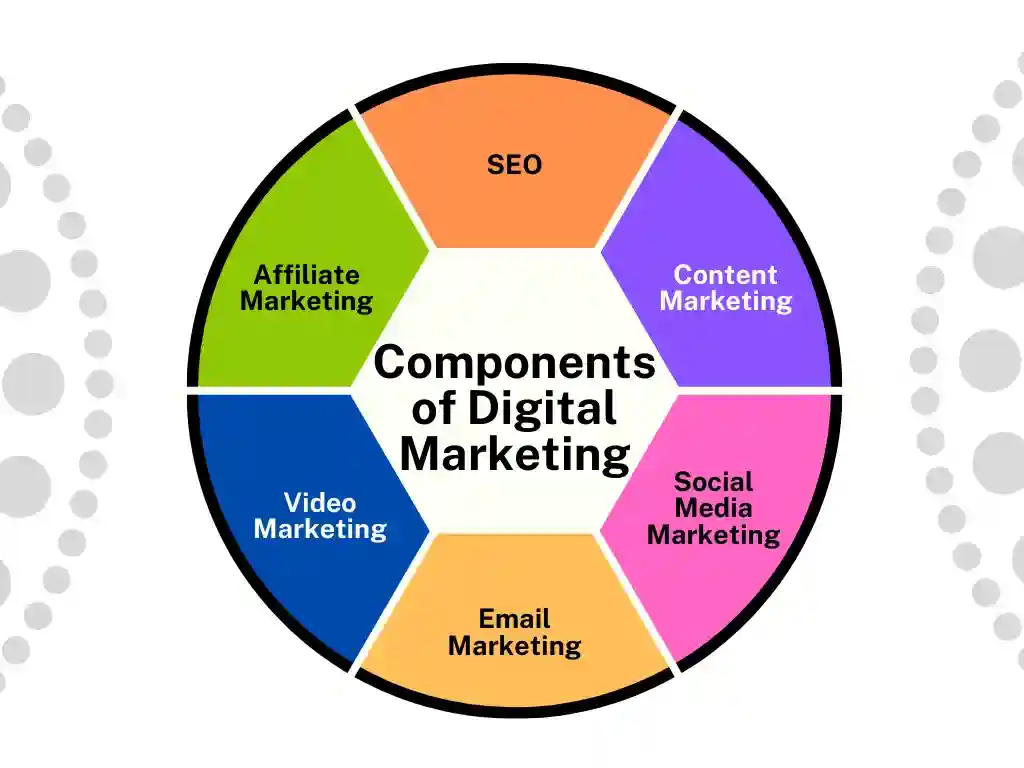
4. SEO: Enhancing Online Visibility SEO is a crucial component of digital marketing that focuses on optimizing websites to rank higher on search engine results pages (SERPs). Effective SEO strategies include keyword research, on-page optimization, backlink building, and content creation.
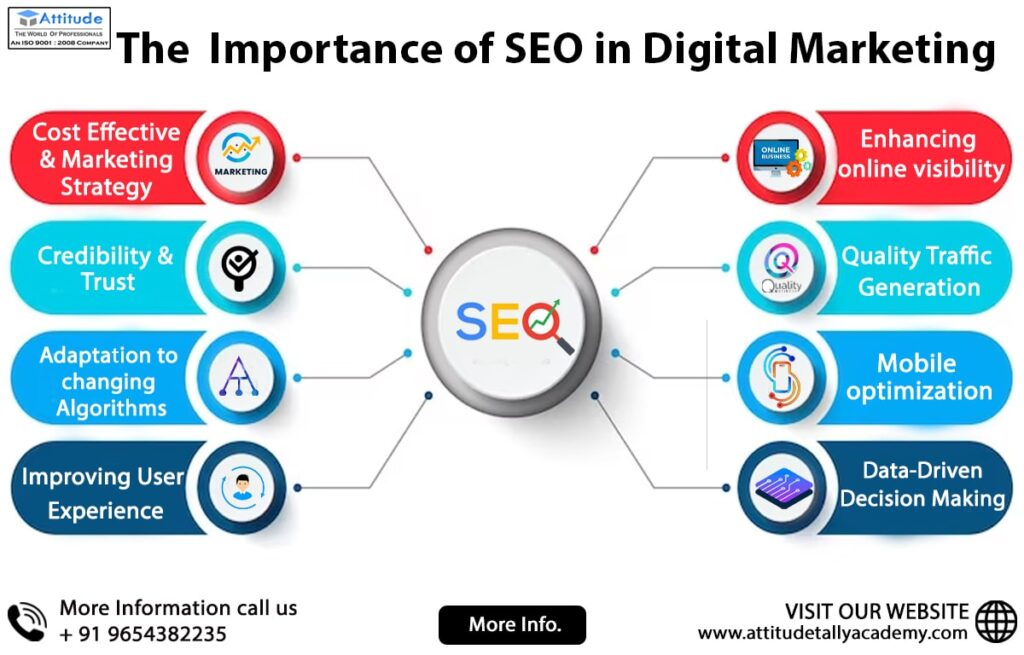
5. Social Media Marketing: Engaging with the Audience Social media platforms like Facebook, Instagram, Twitter, and LinkedIn provide businesses with opportunities to engage with their audience. SMM strategies involve creating engaging content, running paid advertisements, and interacting with followers to build brand loyalty.
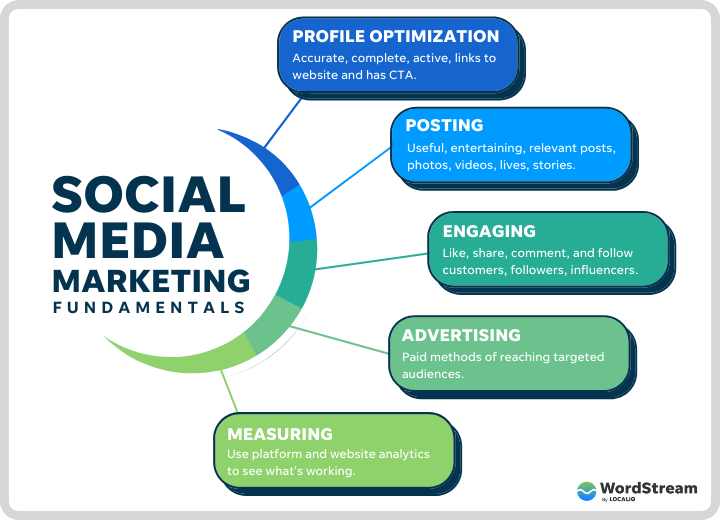
6. Content Marketing: The Power of Storytelling Content marketing revolves around creating valuable and relevant content to attract and retain customers. Blog posts, articles, videos, infographics, and podcasts play a vital role in educating and influencing the target audience.

7. PPC Advertising: Driving Instant Traffic Pay-Per-Click advertising allows businesses to display ads on search engines and social media platforms. Google Ads and Facebook Ads are popular PPC platforms that help businesses drive targeted traffic and generate leads quickly.
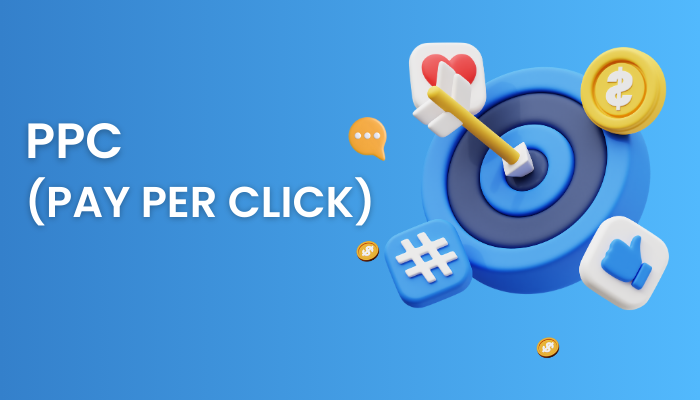
8. Email Marketing: Nurturing Customer Relationships Email marketing remains a powerful tool for customer retention. Businesses use personalized email campaigns to promote products, share updates, and provide valuable content, leading to higher conversion rates.
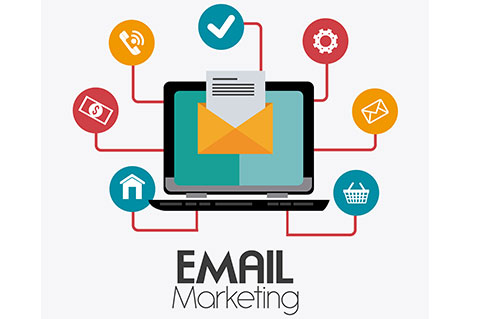
9. Future Trends in Digital Marketing The digital marketing landscape is constantly evolving. Emerging trends include:
- Artificial Intelligence (AI) in Marketing
- Voice Search Optimization
- Video Marketing Dominance
- Chatbots and Conversational Marketing
- Personalized Marketing Strategies
10. Career Opportunities in Digital Marketing The growing demand for digital marketing has opened numerous career opportunities, such as:
- SEO Specialist
- Social Media Manager
- Content Marketer
- PPC Expert
- Digital Marketing Strategist
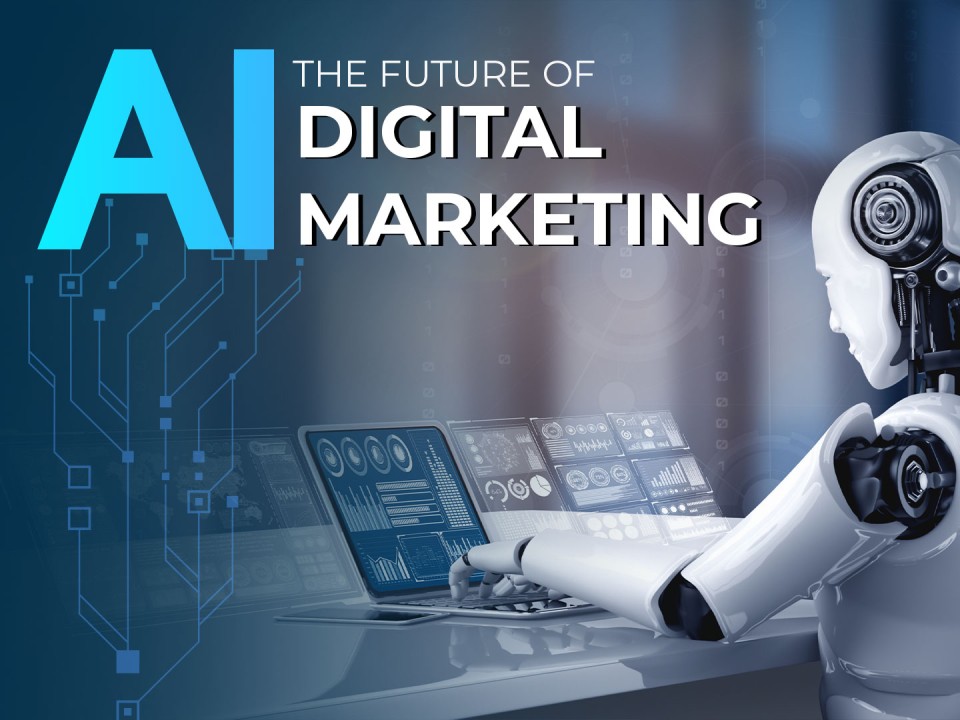
Conclusion The scope of digital marketing is vast and continuously expanding. Businesses that embrace digital marketing strategies gain a significant advantage in today’s competitive market. As technology advances, digital marketing will continue to evolve, offering new and innovative ways to connect with audiences.